Review: 'The Last of Us' (Season 2)
Beautiful and terrifying - the next chapter of Joel and Ellie's story hits every note perfectly.
An ancient Chinese proverb says: “Before embarking on a journey of revenge, dig two graves.” Mostly associated with the Chinese philosopher Confucius, it warns that revenge can be a double-edged blade, often hurting both sides in the conflict equally. It’s a warning that echoes throughout the second season of HBO’s masterful adaptation of The Last of Us.
Based on the award-winning video games by game developer Naughty Dog and published by Sony Computer Entertainment, The Last of Us tells the story of Joel and his adoptive daughter Ellie’s travels through a post-apocalyptic United States.
The world has fallen to the Cordyceps infection—a parasitic spore-based organism that takes control of a human host—brutally mutating the body and sending the victim into a murderous rage, following a single instinct: infect more victims.
What makes this even more terrifying—which is perhaps one of the reasons this concept works so well in a post-apocalyptic story—is that the Cordyceps exists in real life. Luckily it only affects insects. For now.
There are over 260 species of Cordyceps worldwide.
It has been used in Chinese medicine for over 1,500 years...
Nope.
In the first season, we witnessed the fall of civilization to the Cordyceps infection and the beginnings of the struggle to overcome it. True to human form, survivors band together in tribes and factions, distrusting each other to the point of armed conflict over a multitude of reasons: resources, ideology, power—the usual suspects.
We meet the blue-collar working man Joel (played by Pedro Pascal), in his 50s, who suffers the loss of his daughter in the violence of the fall of civilization. Later, he meets Ellie (played by Bella Ramsay), the teenage girl who, for some reason, is immune to the Cordyceps. Why is she unique? No one knows. But it makes her both a source of hope—and conflict.
In the first season, we follow Joel and Ellie's trek through the devastated countryside, avoiding both mutated Cordyceps monstrosities and desperate bands of murderous survivors alike.
As different factions hunt her for the secrets of her immunity, Joel’s relationship with Ellie evolves from being a guardian to a father figure. Their journey ends in bloodshed, mayhem, and secrecy, with Joel committing unforgivable acts in his desperation to protect his adopted daughter.
The second season of The Last of Us picks up five years after the events of the first. Joel and Ellie are now citizens of Jackson, a large, walled community of survivors in Wyoming led by Joel’s younger brother Tommy (played by Gabriel Luna).
Here, between daily wilderness patrols for Cordyceps-infected monsters and human raiders, Joel and Ellie have settled into a tense dynamic of overprotective father and rebellious teenager. The distrust between them lingers from what happened five years ago.
But the past has a way of catching up with old sins. Survivors from Joel’s murderous rampage five years ago, now bent on revenge, have tracked Joel and Ellie to their walled community in Wyoming.
Led by Abby (played by Kaitlyn Dever), they are part of the Seattle-based militia group called The Wolves. And Abby will stop at nothing to make Joel pay for killing her father as he saved Ellie’s life.
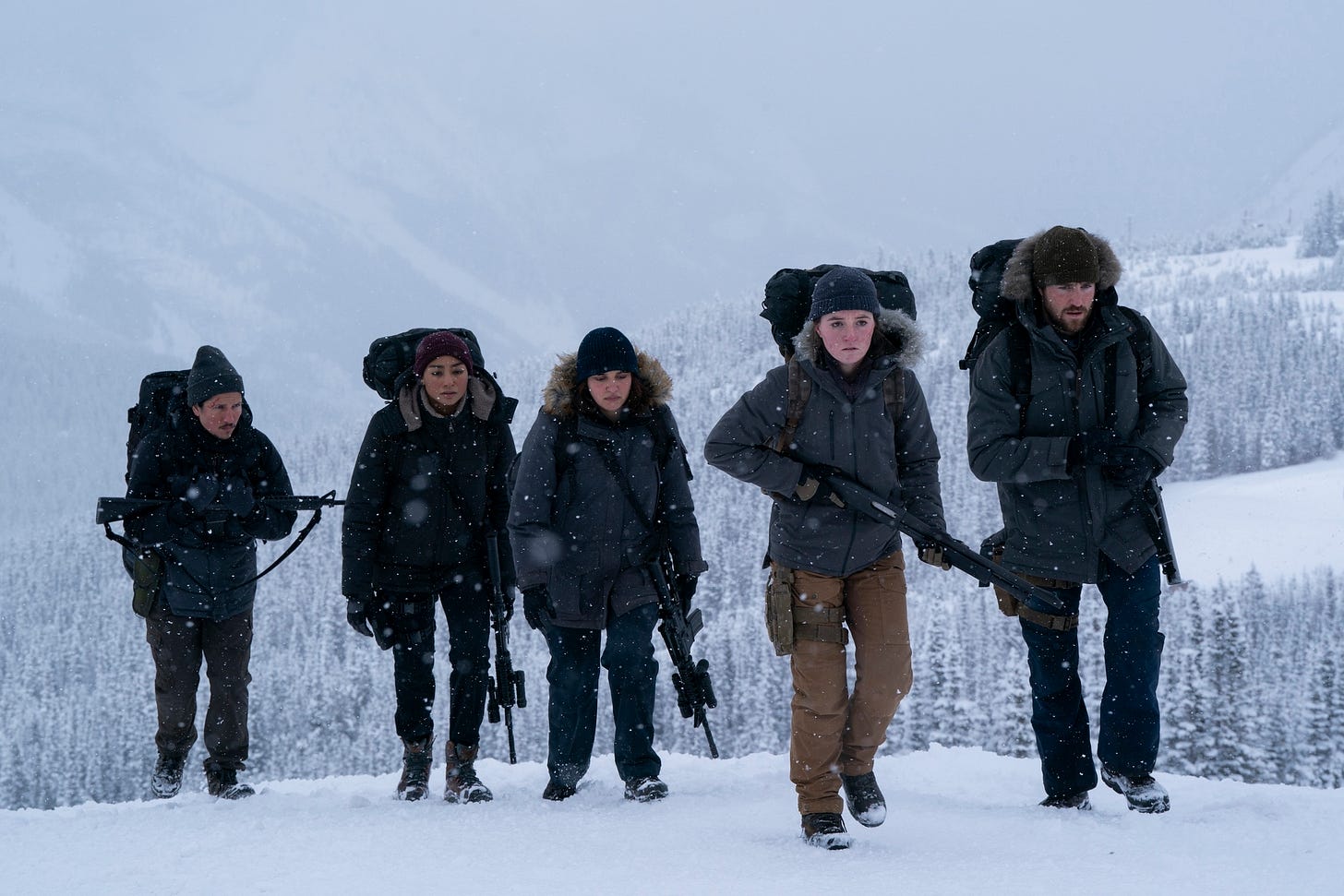
I won’t go into how all this unfolds, but those of you who have played The Last of Us 2 know. This season doesn’t pull any punches and follows the game faithfully, for better or for worse, depending on who you ask and what side of the controversies you landed on back when the game was released.
This season will be no different. Tempers will rise.
After a couple of episodes centered on the stories in Jackson, Wyoming—with certain incredibly intense scenes when it comes to action and Cordyceps-fueled scares—the story changes focus to a road trip to Seattle.
As they travel through the post-apocalyptic landscape, the background for the drama and secrets between Joel and Ellie over the past five years gradually come to light. We also meet Ellie’s love interest, Dina (played by Isabela Merced), who joins the journey to Seattle out of loyalty and affection for Ellie.
Like the first season, the second season of The Last of Us is exceptionally well done. Pedro Pascal and Bella Ramsey are, of course, the main attractions here as Joel and Ellie. Despite already delivering strong performances in the first season, both take it up another notch, with believable character development and engaging—and sometimes heartbreaking—dialogue.
That said, both characters develop in very different ways. While Joel is older now, more stoic and protective—struggling to be the father Ellie needs—Ellie is the rebellious teenager, haunted by trauma and discovering herself as she continues her journey. Ellie is often stubborn, angry, and irrational, and to be honest, not very likable. But that makes her more vulnerable moments all the more powerful.
While Gabriel Luna delivers a strong performance as Joel’s brother Tommy, it’s Isabela Merced’s portrayal of Dina that surprised me the most this season. As Ellie’s love interest, she is, in many ways, her complete opposite. Warm and caring, she keeps Ellie grounded, holding her back from the abyss she edges closer to with each step of their journey.
Kaitlyn Dever also gives a great performance as Abby, even though she’s mainly off screen this season. Still, in the scenes we get with her, she balances revenge, hate, and despair beautifully, proving that in this world, nothing is ever clear-cut or purely good or evil. Human nature—and frailty—governs all.
Like the game it’s based on, this second season of The Last of Us presents the story from multiple perspectives. The Cordyceps-infected world gradually opens up, revealing various factions and conflicts that allow us, as the audience, to glimpse a broader, interconnected world just out of reach for our main characters.
These different perspectives also introduce us to a diverse array of side characters, including the ruthless leader of The Wolves, Isaac Dixon, who is locked in conflict with a violent and brutal religious cult called The Scars. Dixon is played by one of my favorite actors, Jeffrey Wright, who also voiced the same character in the video game.
The second season of The Last of Us is a beautiful and terrifying journey through a post-apocalyptic United States. With themes of family and revenge taking center stage, the story of Joel and Ellie doesn’t hold back, proving once again that it’s possible to make video game adaptations with storytelling ranked among the best.


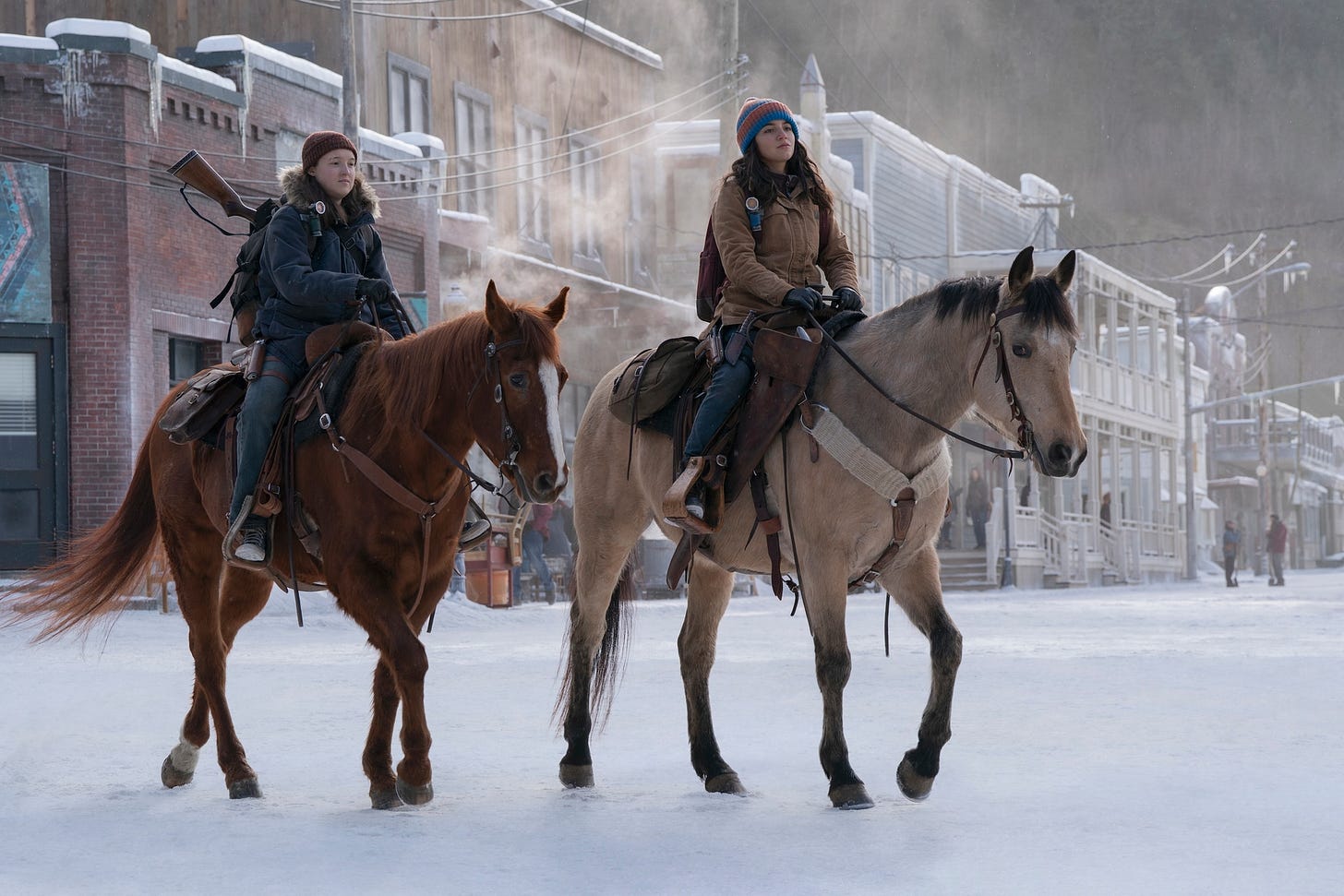
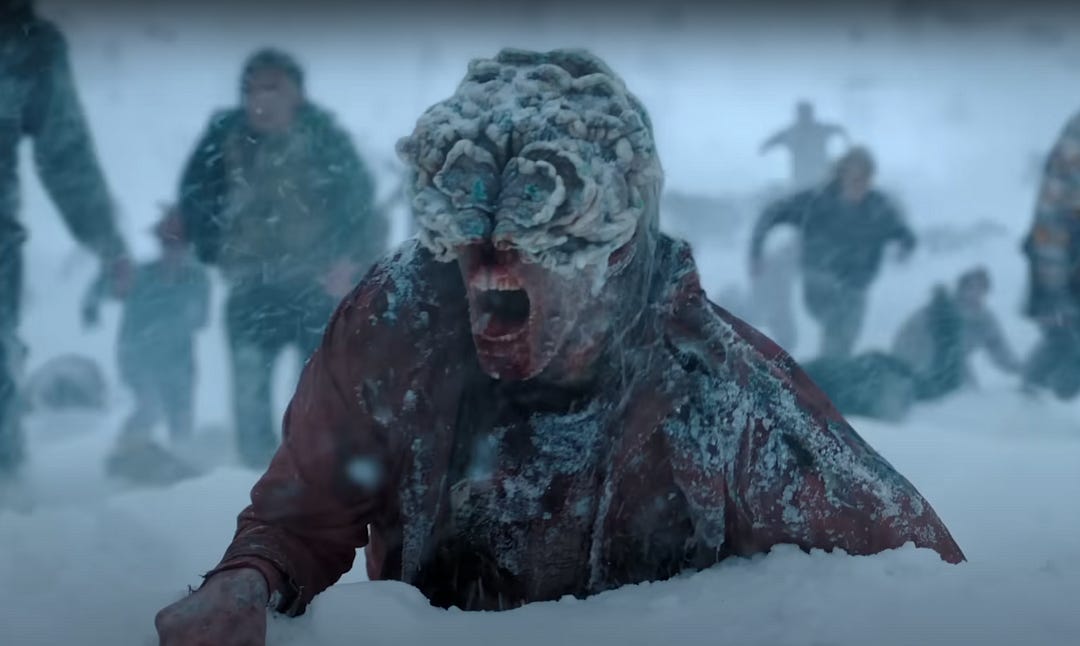

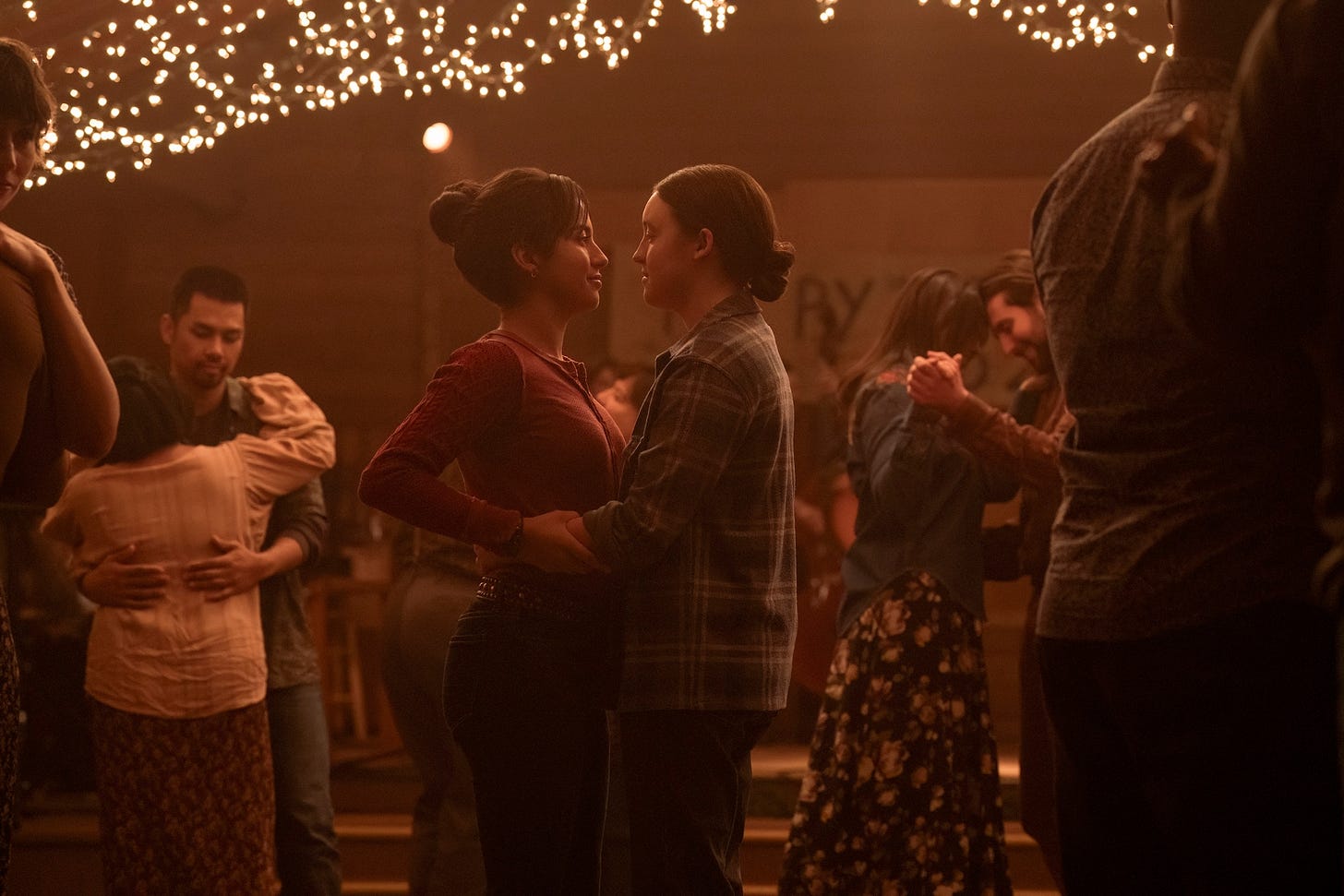
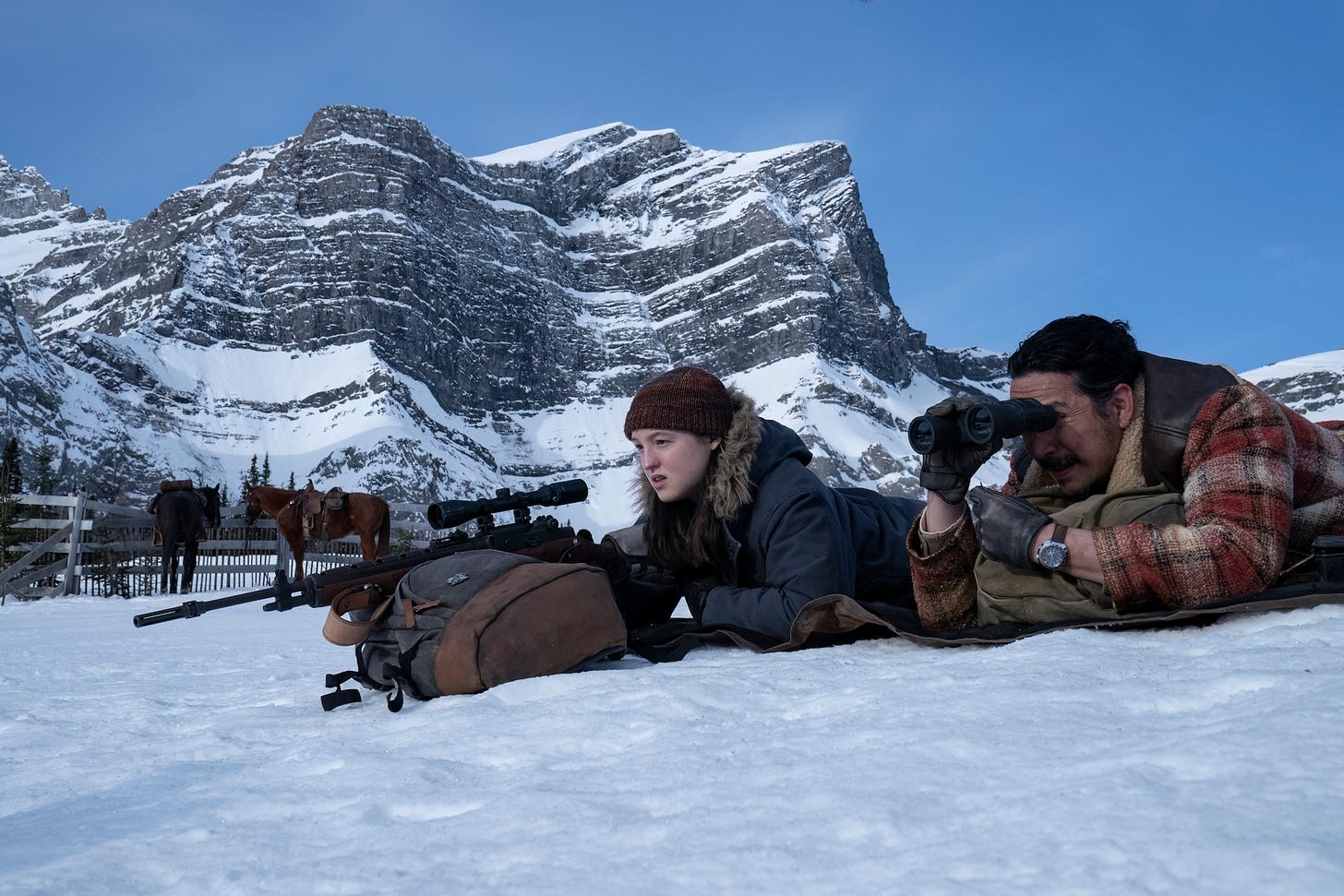
“Before embarking on a journey of revenge, dig two graves.” this is really the perfect proverb to illustrate The Last of Us 2.
I'm super curious about your comment around Abby being mostly off screen. I feel she was a huge presence from the start in the game but I might be more biased cause I know the ending. She is definitely a main character in the game to the same level as Ellie.
2 years ago, I wrote: "Heightened by a real-life pandemic we’re emerging from. Our shared trauma is explored in HBO’s live-action adaptation of an award-winning PlayStation 3 (PS3) video game from 2013." Your review of season two solidifies how much I'm looking forward to seeing it.